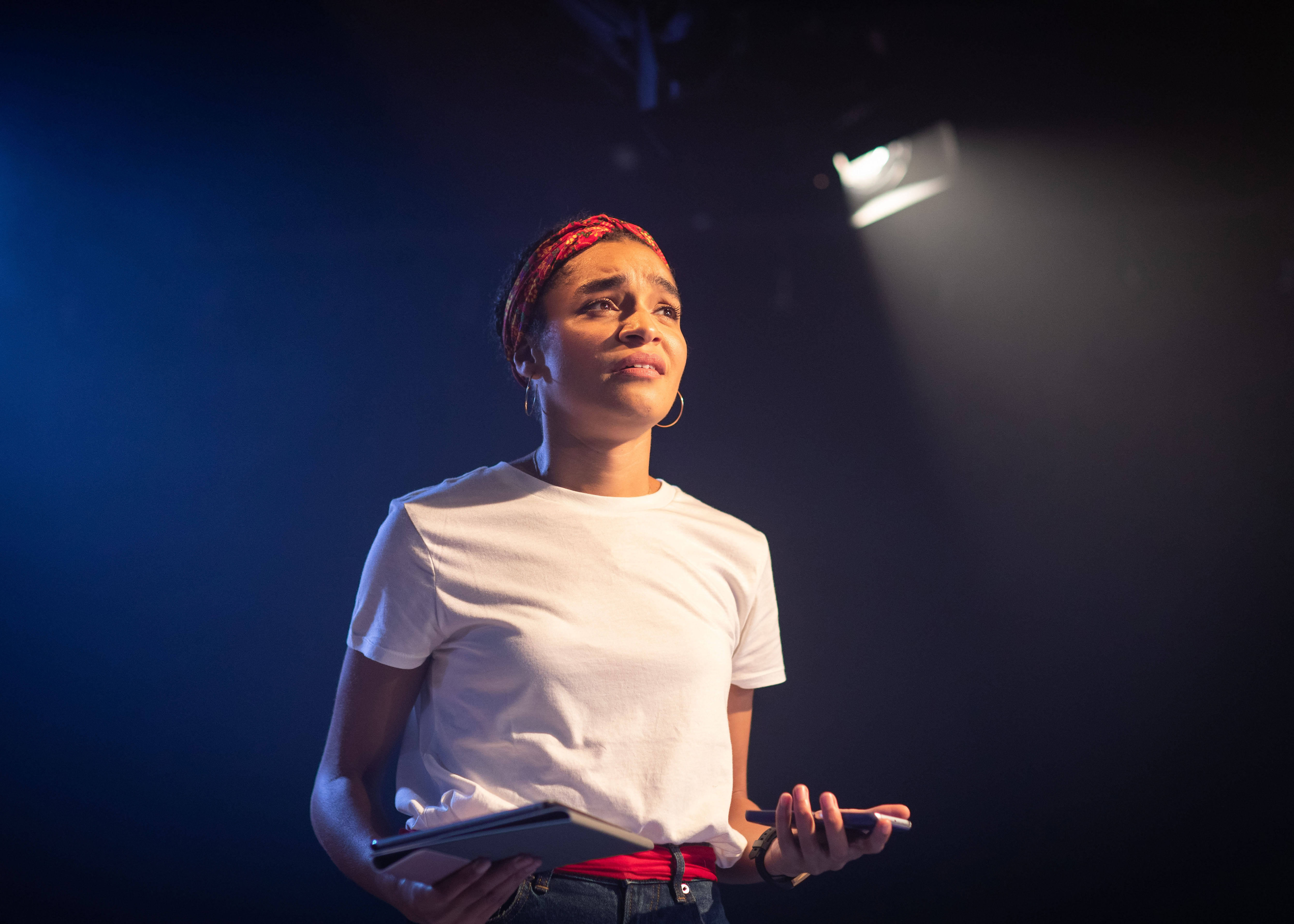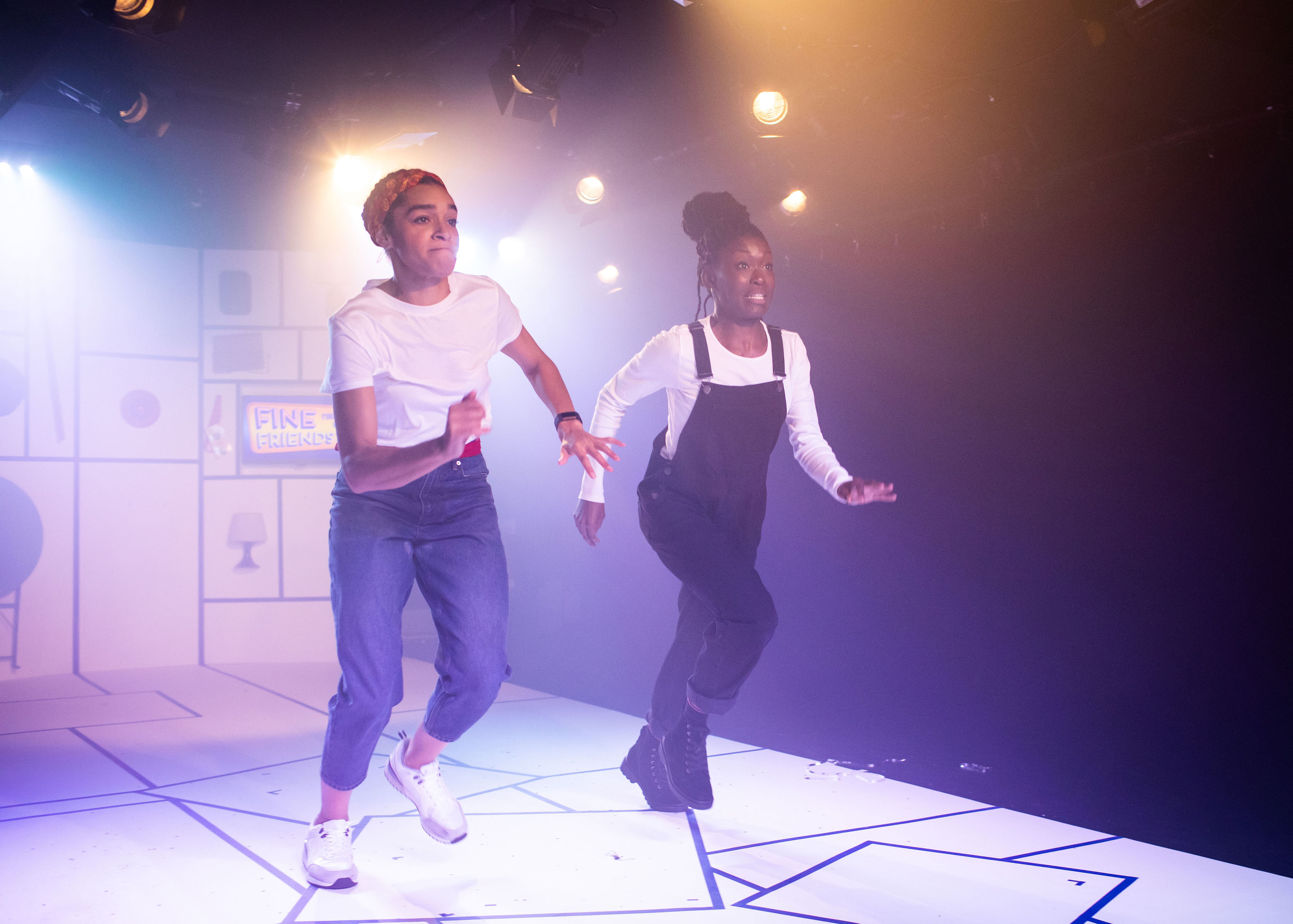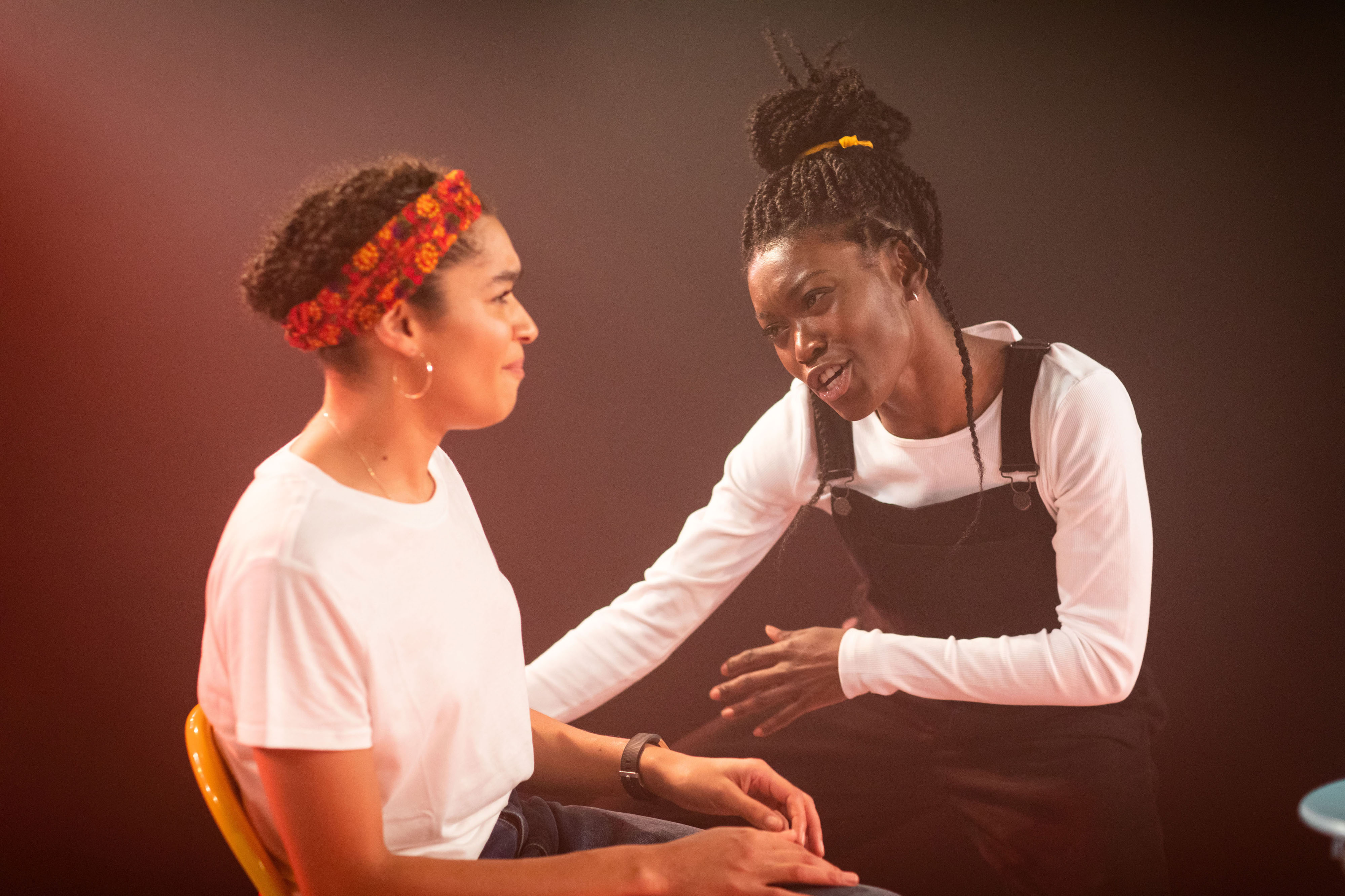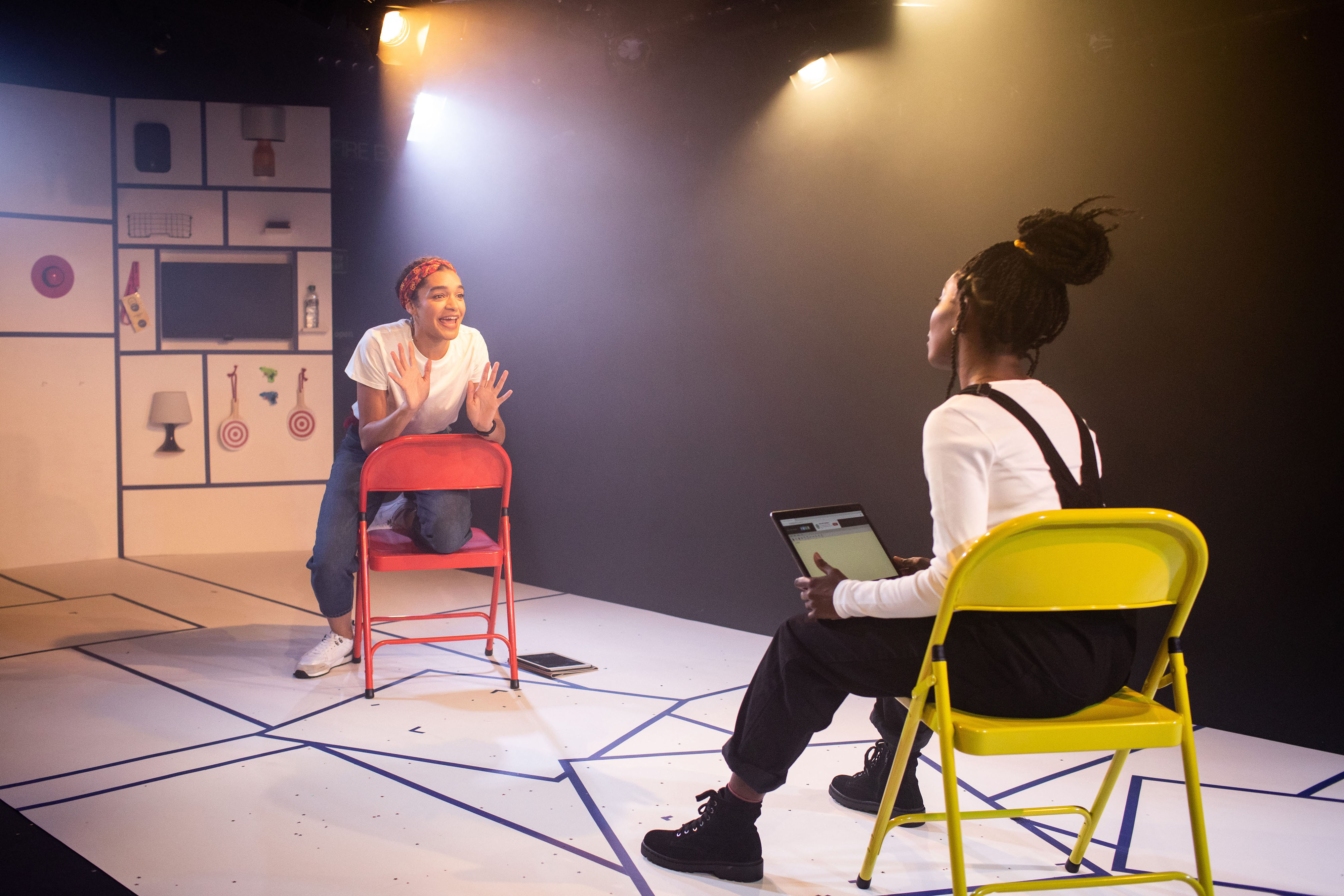I was excited to see this play as it promised to echo several conversations that I have had recently with fellow black women in the arts. “It’s about racism in performing arts and what happens when you try to combat that from within the machine” says Cassiopeia Berkeley-Agyepong; one of the writers and a character in the play (Cassi). “It’s important to mention that one [character] is a black woman and one is a mixed-race woman and they are discussing the situations that they find themselves in, in terms of racist remarks or micro-aggressions they experience and generally all kinds of nonsense stuff that happens with the industry as well”, says Lakesha Arie-Angelo, a resident director at Soho Theatre who directs the play.
Unfortunately, I could relate to almost every example they used to illustrate racist and micro-aggressive scenarios
We are invited to be the third person in a topical conversation between Cassi played by Tanisha Spring and Simone played by Olivia Onyehara. Simone Ibbett-Brown is the other co-writer.
We follow these two trained and highly-skilled women through their semi-autobiographical story. Cassi is a musical theatre actress who is exhausted by the roles of ‘Sassy Friend’, ‘Spunky Slave’, and ‘Third Crack Whore from the Left’ at every audition. Similarly, Simone a trained opera singer who quickly discovers that London is not the BNP-free utopia she’d always dreamed of.
Desperate to be seen as they are, not as the colour of their skin, they decide to take control and write their own story. Cue Shuck ‘n’ Jive. We are pulled between the creative process of how the play came to be and the actual scenes being played in front of us by the use of meta-narrative. ‘Is it a play when we’re just staging random conversations we’re having?’ they ask.
The staging, designed by Ranya El Refaey, is simple, clean and clear. Its white background with taped grids is akin to a backstage props table which brings you into the conversation as if we are in the creative process with them. It could also be interpreted like a maze which echoes the complexities of subject matter. The two women relentlessly try to figure out how to write their truths whilst still being inclusive, yet not be defined by their colour despite the fact that their colour is the focus.
Unfortunately, I could relate to almost every example they used to illustrate racist and micro-aggressive scenarios, so it is very relatable. This being said, there was a lot to laugh at and comedy was well used to lighten the tone. The sound and the lighting (Anna Clock and Jai Morjaria) was pitched well. It was brilliantly acted by both Tanisha Spring and Olivia Onyehara, both delivering powerful monologues which were raw and honest alongside their chemistry which was exciting to watch.
It was brilliantly acted by both Tanisha Spring and Olivia Onyehara, both delivering powerful monologues
Initially, I found the ending frustrating as I was left thinking “…and?” but the more I think about, it I felt frustrated because this is where we are at with theatre. This is playing out in real time, so we are far from resolution. Plays like this are supposed to start a conversation that will lead us towards change and allow space for black female writers to tell stories that represent us as four-dimensional characters.
I recommend everyone sees Shuck ‘N’ Jive and I look forward to seeing more work from these women.




























